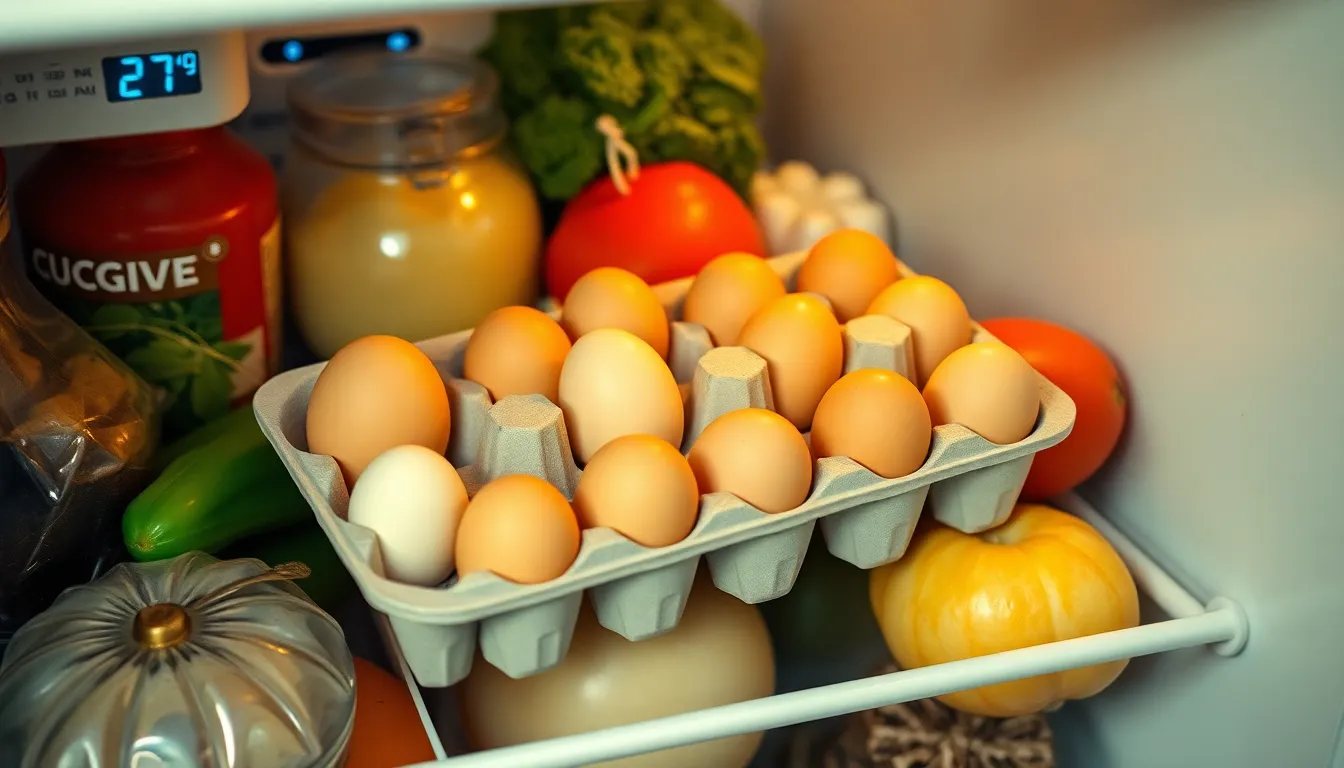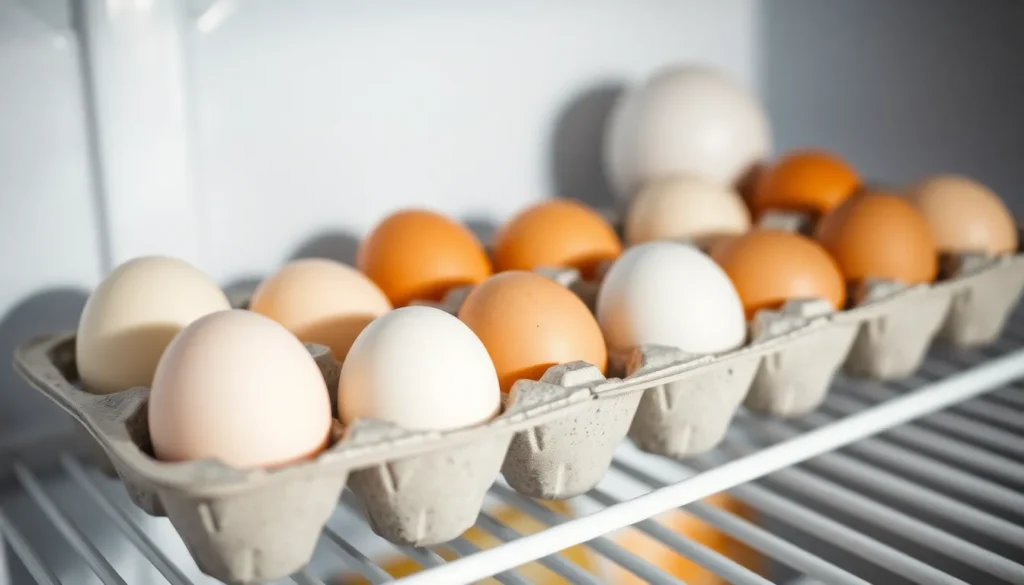Eggs are a kitchen staple that can turn a simple meal into a culinary masterpiece. But how long can they hang out in the fridge before they start plotting their escape? Spoiler alert: it’s not as long as you might think. Understanding the lifespan of eggs not only saves you from an unexpected omelet disaster but also keeps your meals safe and delicious.
Table of Contents
ToggleUnderstanding Egg Freshness
Egg freshness significantly impacts both safety and culinary quality. Evaluating freshness involves various scientific principles and factors influenced by storage conditions.
The Science Behind Egg Preservation
Eggs contain proteins and nutrients within a porous shell, which can allow bacteria to enter. Refrigeration slows bacterial growth, extending shelf life. The unique composition of the egg white and yolk also acts as a natural barrier against spoilage. When stored at temperatures below 40°F, eggs can last longer due to reduced enzyme activity and moisture loss. An egg’s age can often be determined by conducting a simple water float test, where fresh eggs sink while older ones tend to float.
Factors Affecting Egg Longevity
Several factors determine how long eggs last in the fridge. Storage temperature plays a crucial role, with colder environments promoting freshness. Egg handling affects longevity as well; gentle handling minimizes cracks and reduces exposure to bacteria. The date on the carton provides a general guideline, but proper storage extends usability. Additionally, purity of the egg’s outer shell influences its lifespan; a clean shell lasts longer than one contaminated with dirt or debris.
How Long Eggs Last In Fridge

Eggs typically last three to five weeks in the fridge, provided they remain uncracked and properly stored. Freshness alongside safety remains critical for cooked and uncooked eggs.
General Guidelines for Storage
Storing eggs in their original carton prevents moisture loss and absorbs odors from other foods. Refrigerators should maintain a temperature below 40°F (4°C) to inhibit bacterial growth. Placing eggs in the main compartment rather than the door ensures a more stable temperature, enhancing shelf life. Regular checks ensure that older eggs are used first. It’s optimal to keep eggs away from strong-smelling foods to preserve quality and flavor.
Signs of Spoilage
Examining eggs for signs of spoilage proves essential. A strong sulfur smell indicates decay. Shells might appear slimy or powdery, reflecting bacterial activity. The water float test can be particularly useful; fresh eggs sink, while spoiled ones float. Cracked shells allow bacteria entry and speed up spoilage. If an egg’s yolk or white appears discolored, discard it to avoid health risks.
Best Practices for Storing Eggs
Storing eggs properly extends their freshness and ensures food safety. To maximize the shelf life of eggs, follow these best practices.
Ideal Fridge Temperature
Keeping the refrigerator at or below 40°F (4°C) prevents bacterial growth. Temperatures above this threshold may reduce the quality of eggs and increase the risk of spoilage. Regularly checking the fridge’s temperature helps maintain an optimal environment. Fresh eggs maintain their flavor and texture longer when stored correctly. A refrigerator thermometer provides accurate readings to ensure safety.
Proper Egg Placement
Eggs should remain in their original carton during storage. The carton protects them from moisture loss and odor absorption. Storing eggs on the middle shelf offers the most consistent temperature. Avoid placing eggs in the door, as temperatures fluctuate more there. Keeping eggs away from strong-smelling foods prevents them from absorbing unwanted odors. Prioritizing egg placement helps extend their usability and maintains quality for cooking.
Tips for Extending Egg Shelf Life
Maximizing egg freshness involves strategic storage methods. Both vacuum sealing and freezing present viable options.
Vacuum Sealing
Vacuum sealing eggs prolongs their shelf life significantly. This approach removes air, thus minimizing the risk of spoilage. After cracking the eggs, pouring them into a vacuum-sealed bag is effective. Sealed bags can be stored in the fridge for up to two weeks. For better organization, labels should indicate the date of sealing. This method enhances quality while keeping eggs safe for consumption.
Freezing Eggs
Freezing offers another practical preservation technique. Scrambled or beaten eggs freeze well and maintain their quality. Eggs can be whisked lightly before being placed in ice cube trays for convenient portioning. Once frozen, transferring them to a freezer bag extends usability up to six months. To use, thaw them overnight in the fridge before cooking. Properly frozen and thawed eggs retain culinary integrity, making this method ideal for longer-term storage.
Knowing how long eggs last in the fridge is essential for both safety and quality. By following proper storage guidelines and understanding the signs of spoilage, individuals can enjoy eggs at their best. Utilizing techniques like vacuum sealing and freezing can further extend their shelf life, making it easier to reduce waste and enhance meal preparation.
With a bit of attention to detail, anyone can ensure that their eggs remain fresh and safe for consumption. Embracing these practices not only contributes to better cooking experiences but also promotes food safety in the kitchen.




